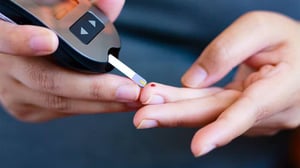To test whether the man’s improvement was coincidental or indeed linked to the electrodes and the deep brain stimulation, Mireille Serlie, an endocrinologist from the Academic Medical Center of Amsterdam (Holland) observed a further 14 patients with DBS implants for the same kind of OCD (that did not, however, have diabetes). The blood of these patients was analysed, in order to measure blood sugar levels when the electrodes were switched on and, in turn, when they were switched off. Researchers thus effectively discovered that the stimulation of the brain area linked to reward-seeking (governed by a neurotransmitter called dopamine) has measurable effects on the regulation of glycaemia, i.e. the management of sugar (glucose) in the blood, in addition to mood. In particular, deep brain stimulation, which increases the production of dopamine, also increases insulin sensitivity (the hormone, produced by the pancreas, which enables cells in the body to use glucose, and that people with type 2 diabetes do not have).
Of course – as the researchers in the Science Translational Medicine journal have underlined – this does not mean that brain electrodes may become a therapy to treat diabetes (it would be far too invasive…). But these studies suggest that the role played by dopamine may lead to a different perception of the illness and, consequently, to new therapeutic approaches.
Similar results on animals have already been achieved, and were also replicated by the same Dutch researchers, who stimulated the dopaminergic neurons of animals in other ways (i.e. the neurons that produce dopamine), resulting in an increase in insulin sensitivity also in this case.
The Dutch researchers went a step further and asked ten healthy people to take a drug that decreases dopamine levels, showing that insulin sensitivity decreased at an equal pace with the concentration of the neurotransmitter.
Tests are now continuing to check if, at least in diabetics whose organs have not been compromised, the action of dopamine (via drugs) can or cannot represent a real therapeutic alternative.


